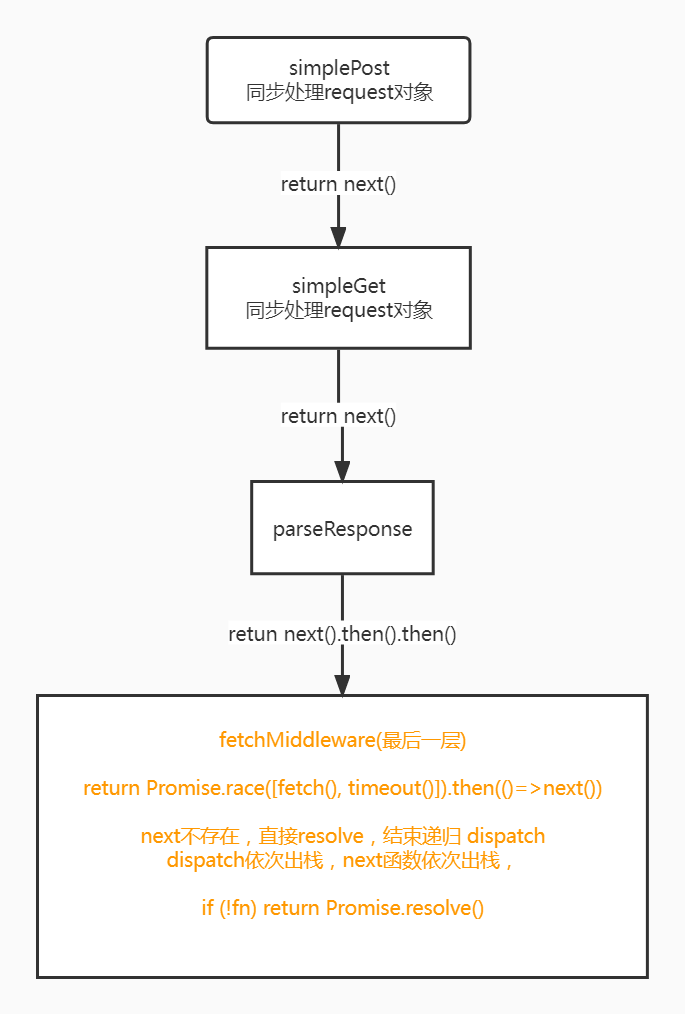umi-request
The network request library, based on fetch encapsulation, combines the features of fetch and axios to provide developers with a unified api call method, simplifying usage, and providing common functions such as caching, timeout, character encoding processing, and error handling.
插件机制
umi-request 基于插件实现,内部的洋葱模型 onion.js 参考自 koa 的 koa-compose
用户自定义中间件
- ctx(Object):context, content request and response
- next(Function):function to call the next middleware
request.use(async (ctx, next) => {
console.log('a1');
await next();
console.log('a2');
})
中间件执行顺序从左到右,首先执行自定义中间件,在依次执行 simplePost(对请求body,即data做处理),simpleGet(对请求params做处理,实现 query 简化、 post 简化), parseResponseMiddleware(解析json,gbk数据),最后执行 fetchMiddleware ,最终发送http请求.
这里会有疑惑,为什么不是先发送请求,再 parseResponse, 其实在 parseResponseMiddleware 中直接先掉用了 next(),即先执行了 fetchMiddleware,实际的 parse response 过程还是在http请求结果返回值后执行的
这里用户定义的中间件默认为 this.middlewares, this.defaultMiddlewares默认为 [],Onion.globalMiddlewares和Onion.coreMiddlewares如下
const globalMiddlewares = [simplePost, simpleGet, parseResponseMiddleware];
const coreMiddlewares = [fetchMiddleware];
function execute(params = null) {
const fn = compose([
...this.middlewares,
...this.defaultMiddlewares,
...Onion.globalMiddlewares,
...Onion.coreMiddlewares,
]);
return fn(params);
}
compose 函数
compose 函数返回一个组合了所有插件的“插件”函数,这个函数接受一个http请求的request 对象作为参数,参数被compose从一个个中间件中处理后返回的 promise
闭包函数 dispatch 作为调度函数,每次执行 next(),即会调用 dispatch 函数执行下一个中间件,当下一个中间件函数 return 时,上一个函数才能继续执行
export default function compose(middlewares) {
if (!Array.isArray(middlewares)) throw new TypeError('Middlewares must be an array!');
const middlewaresLen = middlewares.length;
for (let i = 0; i < middlewaresLen; i++) {
if (typeof middlewares[i] !== 'function') {
throw new TypeError('Middleware must be componsed of function');
}
}
return function wrapMiddlewares(params, next) {
let index = -1;
function dispatch(i) {
if (i <= index) {
return Promise.reject(new Error('next() should not be called multiple times in one middleware!'));
}
index = i;
const fn = middlewares[i] || next;
if (!fn) return Promise.resolve();
try {
return Promise.resolve(fn(params, () => dispatch(i + 1)));
} catch (err) {
return Promise.reject(err);
}
}
return dispatch(0);
};
}
调用栈分析

